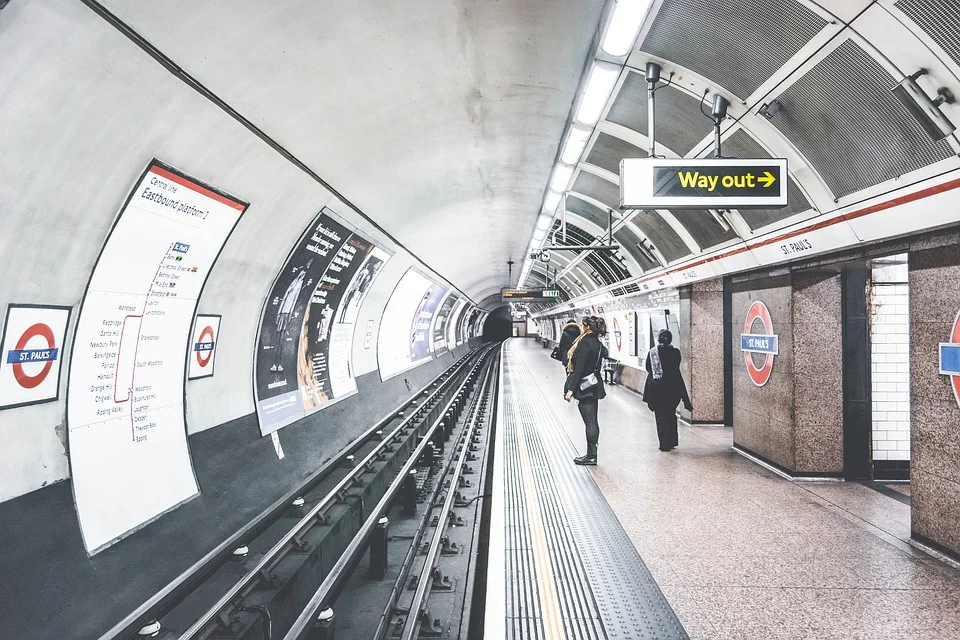 Commuting in the UK has always been an issue, with an average commute nearly an hour long at 54 minutes. But, according to Instant Offices, it’s Londoners who bear the brunt of this with the longest commute in the country at 74 minutes – almost twice the global average of 40 minutes.According to a recent poll, two-thirds of Londoners describe using public transport as the most stressful part of living in the capital. Commuting is considered an unpleasant activity, and when you factor in the time it takes to travel to work in London, it is not surprising that many professionals and businesses are looking for alternative ways of working.Based on official figures from the Department for Transport, crowded trains are carrying almost double the number of passengers they were designed to take.Demand for rail services in London has increased by 12 per cent over the past six years. It is forecast that by the early 2030s Waterloo trains in peak hours could be comparable to 5.4 passengers cramming into an average-sized phone booth.A Rail Delivery Group report found that the number of rail journeys was up from 800 million in the late 1990s to 1.6 billion in 2015, meaning that the number of train journeys made each year has more than doubled since that time period.
Commuting in the UK has always been an issue, with an average commute nearly an hour long at 54 minutes. But, according to Instant Offices, it’s Londoners who bear the brunt of this with the longest commute in the country at 74 minutes – almost twice the global average of 40 minutes.According to a recent poll, two-thirds of Londoners describe using public transport as the most stressful part of living in the capital. Commuting is considered an unpleasant activity, and when you factor in the time it takes to travel to work in London, it is not surprising that many professionals and businesses are looking for alternative ways of working.Based on official figures from the Department for Transport, crowded trains are carrying almost double the number of passengers they were designed to take.Demand for rail services in London has increased by 12 per cent over the past six years. It is forecast that by the early 2030s Waterloo trains in peak hours could be comparable to 5.4 passengers cramming into an average-sized phone booth.A Rail Delivery Group report found that the number of rail journeys was up from 800 million in the late 1990s to 1.6 billion in 2015, meaning that the number of train journeys made each year has more than doubled since that time period.Commuters are deserting trains
Commuters are becoming frustrated with the long commutes, high fares and often unreliable services of rail travel. Many people are slowly deserting trains and opting to work from home, while Londoners are changing the way they work to avoid the use of the railway.In 2017 alone, rail fares rose by an average of 3.4 per cent, the largest increase since 2013. Cheap train tickets now seem to be a thing of the past as train fares have risen twice as fast as salaries over the past decade.How businesses can help employees combat long commutes
Many rail executives argue that Brexit is to blame for falling traffic, although a more likely reason, given by industry experts, is the high fares and unreliable services. But thanks to more flexible hours and locations being implemented by companies, as well as the increase in part-time jobs and sophisticated technology, going to the office every day is becoming less of a burden.Businesses can help their employees enjoy shorter, cheaper and less stressful commutes in a number of ways:Season ticket loans and discounts
Commuter concerns are not isolated to the time it takes to get to and from work. Due to the increased cost of travel, primarily by rail, many commuters face fares of more than £3, 000 – £5, 000 a year, depending on the route.Businesses can assist employees by offering season ticket loans, which will help those staff members who are unable to pay upfront for a monthly or annual pass. Not only will employees enjoy cheaper rates, but they will be able to pay them back over an extended period.Implement ‘Cycle to Work’ schemes
The ‘Cycle to Work’ scheme is a government tax exemption programme that allows employers to loan bikes and safety equipment to their staff as a tax-free benefit. Employees are also able to ‘buy’ the bike at the end of the repayment.The scheme allows employees to spend up to £1,000 on bikes and equipment, which will be tax-free and result in a saving of 42 per cent on the overall value. In addition to the financial benefits, the scheme aims to encourage people to make healthier and more environmentally friendly lifestyle choices.Offer flexible and/or remote working
Flexible working has been known to have a positive impact on both an employee’s physical and mental health as well as their productivity. In fact, according to a recent survey, 30 per cent of people would choose flexible working over a pay rise if they were given a choice.Remote working could be considered if employees are struggling to make it to the office due to time or money constraints. If full-time remote working is out of the question, consider occasional remote working where employees can work from home or flexible office space near them once or twice a week. In this way, the pressure is alleviated as employees do not have a long commute every day, and companies can save costs on office space and electricity bills.Related and recommended

Many argue the five-day week is no longer fit for purpose, but can a four-day week really work for businesses?

From Rolls-Royce to Marks & Spencer, these CEOs show how decisive leadership can transform Britain’s biggest companies

Rolls-Royce is one of the most famous names in British business, but its financial performance has rarely matched its reputation. Until now. Tufan Erginbilgiç is our CEO of the Year

Years of decline have hollowed out London’s listing market, but founders, banks and ministers are quietly pushing for a revival

